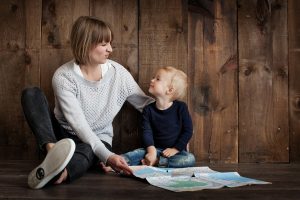Kids Bodies On Autopilot: What Can You Do?
Do you sometimes feel like the kids are operating on autopilot?
Now you may or may not have kids, maybe you have other people’s kids in your life, grandkids, nephews, and nieces, friends of the family and you’re a little worried.
It’s been a tough time for kids (let’s be honest, all of us really) but kids are learning developmental emotional, physical, social, or academic life skills which have been impacted due to lockdowns, home learning, interruptions to regular activities……… the list is long.
What we are seeing in babies and toddlers is obviously different to what we are seeing in older children, but none the less it’s important.
- Babies and toddlers who are showing signs of developmental delay and decreased emotional engagement for age
- Primary school – high school-aged kids are interacting differently with their peers, often more comfortable talking and playing through a screen than face to face
- Kids young and old have more serious injuries when returning to regular sports or activities, as their bodies have deconditioned. They are less fit and more injury-prone.
- Emotional dysregulation and elevated stress in association with being behind at school
- Increased desire to isolate oneself from friends or family.
Kids could appear less interested or engaged, less desire to participate in previously desirable activities, overstimulated / hyperactive, emotional / disruptive or excessively fatigued just to name a few.
Just like adults, a lot of these reactions or behaviours can be happening on autopilot.
In fact, we all operate automatically more than we care to admit.
Essentially we want to focus on what we can do to help support healthy development of children, no matter their age or stage.
So what can you do if your child’s autopilot (subconscious brain patterning) hindering their ongoing learning and development?

1. Interact from a space of understanding and compassion
Recognise that many kids are having a hard time adjusting to their regular routine or environment, even though they are already well into term 2. Remain calm and attentive to your child’s difficulties, so you can respond in helpful ways that are more likely to engage your child, rather than alienate them.
2. Focus on what’s really important and break that down into smaller steps
Be clear about what the real challenges are and tackle one thing at a time. If your child is struggling with a specific skill and you’re not sure what to do, ask for help. Speak to their educator (daycare provider, kindergarten or school teacher), your health professionals (GP, osteopath, psychologist), and or recruit your child to work with you on what they’re struggling with.
3. Set clear boundaries / guidelines / goals
Be consistent with your child regarding what is or isn’t appropriate. Be predictable. This provides certainty and clarity for a child, which in itself is reassuring, even when it’s difficult. This could be about home life routines, homework, screen time etc. or may also be about appropriate language, treatment of family members, or pets. Set clear goals regarding what you are wanting to achieve together and if appropriate any rewards or targets along the way.
4. Get your child’s primitive reflexes checked
Young babies and children have different reflexes to older children or adults. Sometimes children can have retained primitive reflexes, which can affect ongoing learning and development of balance, coordination, gross motor skills, fine motor skills as well as school-based learning such as reading / writing / maths. If you would like to know more about primitive reflexes – click here to watch Prue discussing the impact of retained primitive reflexes. Prue can do primitive reflex testing in child or adult appointments.
5. Ease your child back into sporting activities
This is especially important if your child has recently had covid. Getting back too soon into high-intensity activity has been associated with increased post-infection side effects. Click here for more information regarding long covid (this is relevant for kids and grown ups a like).
If your child is complaining about aches and pains with sport, this is an indicator to get them assessed by our team (or another health professional) as like we said, we are seeing many more muscular and skeletal injuries in kids at this time. Some of these are simple injuries, such as ligament / joint sprains, muscle injury and tear, tendon injuries, and some far more serious such as fractures due to overuse (which is the result of 2 years of underuse).
Your child is responding automatically (which we all do) but particularly in response to the unique and challenging circumstances of the past couple of years. Kids don’t have the same coping mechanisms or learned strategies to adults. While they may seem like they’re going with the flow, their bodies and minds are behaving differently.
Let us know what you think about autopilot behaviours in kids and adults alike.

